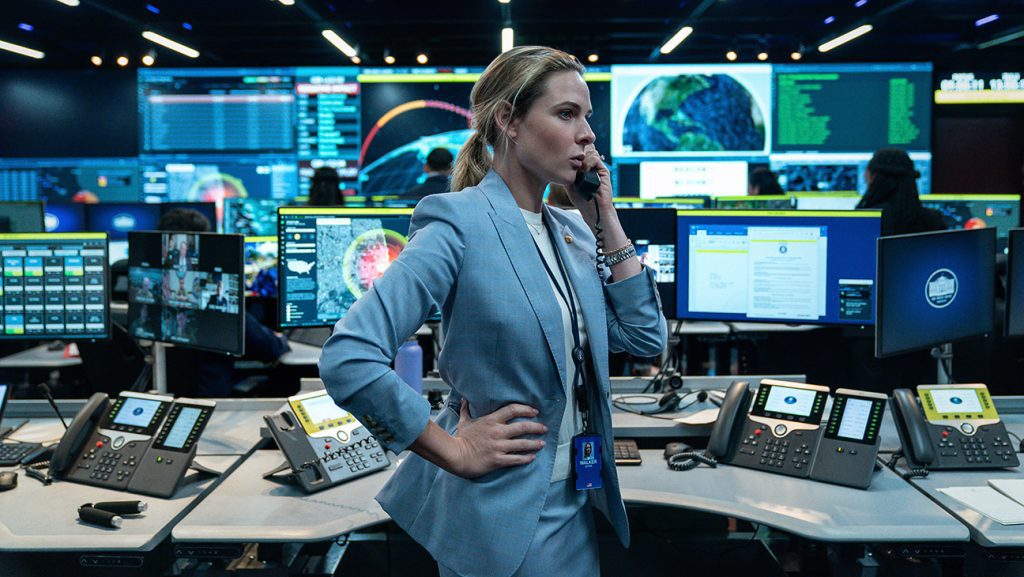After an eight-year hiatus, Kathryn Bigelow makes her return with a gripping and intense thriller, A House of Dynamite. This film isn’t merely about war; it’s a profound exploration of the looming threat that war presents, echoing the emotional weight found in Bigelow’s acclaimed works, The Hurt Locker and Zero Dark Thirty.
Bigelow’s reputation is bolstered by her ability to attract a stellar cast, with many actors delivering impactful performances despite limited screen time. The ensemble is robust, showcasing no weak links among its members.
A House of Dynamite
The Bottom Line
Leaves you breathless.
Venue: Venice Film Festival (Competition)
Release date: Friday, Oct. 24
Cast: Idris Elba, Rebecca Ferguson, Gabriel Basso, Jared Harris, Tracy Letts, Anthony Ramos, Moses Ingram, Jonah Hauer-King, Greta Lee, Jason Clarke
Director: Kathryn Bigelow
Screenwriter: Noah Oppenheim
Rated R,
1 hour 52 minutes
Bigelow’s films are often described with words like raw, gritty, and intense, marked by a documentary-like attention to detail. Her latest work for Netflix embodies these traits while also being insightful, emotionally resonant, and tightly woven. Credit for this goes to Noah Oppenheim’s sharp screenplay, seamlessly complemented by Bigelow’s keen direction.
Almost immediately, the film immerses audiences in a high-stakes scenario involving the imminent threat of a missile aimed at a major U.S. city. The narrative cleverly portrays how the originating country evades detection, hinting at the possibility of a meticulously coordinated attack.
The film revisits the same tense 20-minute countdown from multiple perspectives, revealing the frantic decision-making at various levels—from the White House Situation Room to remote military bases. This window into crisis management and the rapid choices required from numerous individuals is compelling and thought-provoking.
Visually, the film excels through its breathtaking editing and camerawork. Kirk Baxter’s rapid cuts and Barry Ackroyd’s dynamic handheld shots create an engaging viewing experience. The film’s momentum is further enhanced by Volker Bertelmann’s gripping score, which shifts ominously throughout.
The movie establishes an urgent context, highlighting the post-Cold War era where nations believed fewer nuclear weapons would enhance global safety. Yet, as the threat of nuclear annihilation grows, public anxiety has remained stagnant, creating a chilling backdrop for the unfolding drama.



